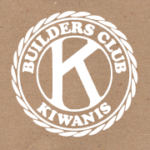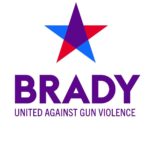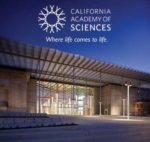Community Collaborations/Partnerships
Together in a collaborative partnership, the Human Rights Campaign Foundation and OutVote offer a Campus Organizing Guide to the 2024 Election. This resource provides information and a step-by-step guide for college students to participate in the election as active voters. If a student is not yet registered to vote, the Campus Organizing Guide also provides information on how to do so.
Reach Out and Read leverages the pediatric well-child visit and a significant partnership with a clinician network to foster early literacy and healthy relationships among parents, infants, and young children. Reach Out and read annually serves 4.4 million children and families throughout the United States of America.
This resource offers insight into the partnership as well as literary, literacy, and research resources to better advocate for early childhood well-being.
Engaging families in the casework process promotes the safety, permanency, and wellbeing of children and families in the child welfare system and is central to successful practice. Effective family engagement occurs when child welfare practitioners actively collaborate and partner with the family network, including maternal and paternal relatives and fictive kin, throughout their involvement with the child welfare system and recognizing them as the experts on their respective situations and empowering them in the process.
This resource from the Children’s Bureau in collaboration with Child Welfare Information Gateway offers further discussion on family engagement as well as steps to achieve it.
Safety on college campuses are essential to student well-being, particularly for students who identify as LGBTQ+. This resource, provided by College Educated, is designed to support students, parents, teachers, and campus professionals with a guide to navigate challenges faced while participating on a college campus.
The hope of this guide is to provide a resource that supports the LGBTQ student, parents, teachers and campus professionals to increase understanding, provide resources and education and hopefully help make connections that will keep an LGBTQ in college and successful as they transition to the workplace.
Climate change is an important learning and advocacy initiative for today’s youth. This free PBL curriculum resource is an engaging and interactive curriculum tailored for grades K-12, focusing on climate change education.
In this engaging and influential program, youth will:
Learn about global climate and environmental problems, including the plastic trash crisis, pollution and its effects, the shortage of fresh water, and other health threats.
Discover how these problems affect their communities.
Explore how their personal choices affect the environment.
Create a proposal to solve a problem related to climate change or the environment in their community.
Present the proposal to experts.
Present the final version of their proposal to their peers at a culminating event
In the following report, Hanover Research examines literature and case studies on engaging diverse families in public, K12 settings. It focuses in particular on the experiences and needs of large, urban public school districts, and on the experiences and needs of African-American and Hispanic families.
There are more than 1,500 Builders Clubs in middle schools around the world. No two are alike. Each club is an independent entity-designed for its members, by its members. They work together to improve their schools and their communities. Their service also increases the visibility and enhances the reputation of both the club and the school or organization they represent. The program is designed to fit member and volunteer interests.
It’s student-led.
Builders Club is uniquely built on an important principle: Amazing things happen when the students take the lead.
It’s age-appropriate.
The program and its resources are designed specifically to help middle school students get the most of of the club experience.
Your needs matter.
Each club determines its own meeting schedule, service projects and other activities in order to fit the needs of advisors, members and sponsors.
You’re not alone.
Adult Kiwanis volunteers and staff at the regional and international levels are there to support your club’s success.
In getting the bipartisan Brady Law passed in 1993, Jim and Sarah Brady accomplished the inconceivable. But there’s more work to be done — and only when we work together will we solve this problem. In order to do that work, we must accept these three truths about America’s gun violence epidemic: 1) Gun ownership demands responsibility; 2) Those empowered to do so must uphold existing gun laws; and 3) Gun violence is a uniquely American problem that impacts all races and ethnicities in the country, but nonetheless exacts a particular toll on Black and Brown communities.
Afterschool snacks are a compilation of free and low-cost activity guides, books, and resources created to engage youth in STEM by learning from doing, also known as tinkering. These Snacks are a healthy, filling way to satisfy your late-afternoon hunger for science. Try building them with friends! From the California Tinkering Afterschool Network, a project of the Exploratorium.
Can’t make it to the Academy? We offer a wide breadth of resources that can impact your teaching from afar. Whether you are looking for kits of classroom materials, lesson plans, science videos, distance learning programs, or full courses, the Academy has science teaching resources galore.
Looking for ideas to spice up your science teaching? Our activity database features full-period lessons to integrate into your normal curriculum, activities to focus your field trip or ideas for extending the museum visit into the classroom.
Based on years of experience training upper elementary school teachers in the Bay Area, we’ve designed a how-to resource for teachers everywhere to illustrate how you can easily and successfully integrate science notebooks into your own classroom.
Get ready to use science notebooks for scientific reasoning and meaning-making, in a way that supports hands-on scientific inquiry!
The Office of Climate Change and Health Equity addresses the impact of climate change on the health of the American people. Exercising powers of convening, coordination and collaboration, the Office serves as a department-wide hub for climate change and health policy, programming, and analysis, in pursuit of environmental justice and equitable health outcomes. The Office also facilitates the use of regulatory and statutory powers of the Department of Health and Human Services to address matters affecting disadvantaged communities and people on the frontlines of the climate crisis. The Office works alongside community-based organizations, non-governmental organizations, academia, business, industry, along with, state, tribal, local, and territorial governments, to define and implement strategies, conduct strategic outreach and communications, and train and empower community residents.
Trauma Informed Care (TIC) is an organizational structure and treatment framework that involves understanding, recognizing, and responding to the effects of all types of trauma. It emphasizes physical, psychological, and emotional safety for both consumers and providers, and helps survivors rebuild a sense of control and empowerment.









